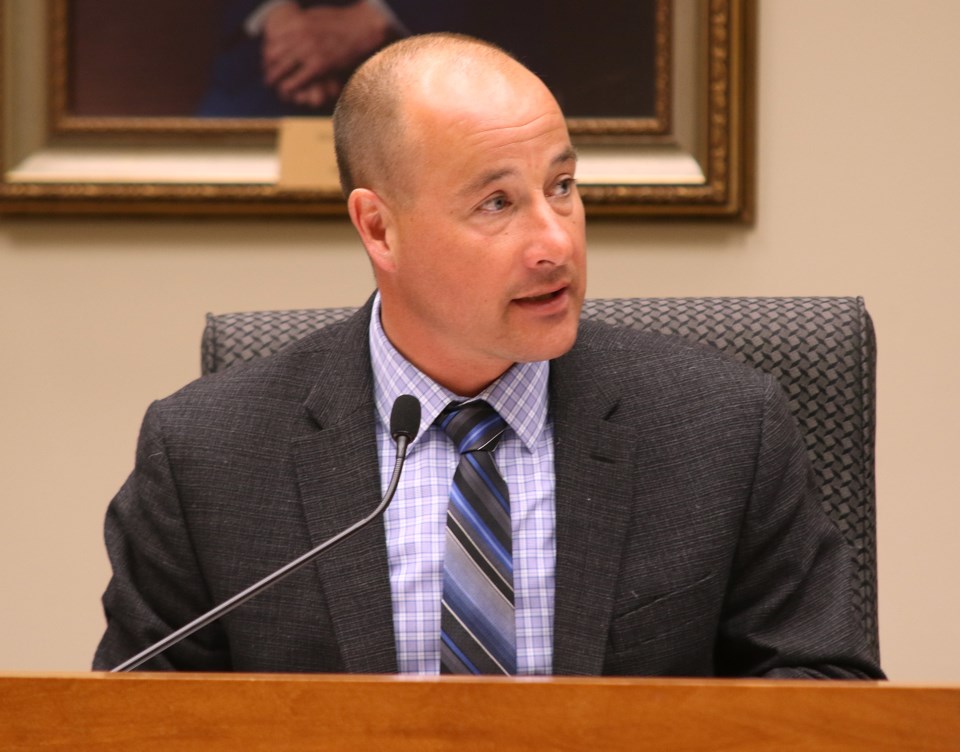THUNDER BAY -- The property value reductions that have cost the city millions of dollars in industrial tax revenue are beginning to hit the commercial sector.
Commercial property valuation appeals have resulted in the city owing $2.1 million in tax refunds to grain elevators and big box retailers, some reaching back to taxes paid in 2008, with further claims outstanding.
The Municipal Property Assessment Corporation (MPAC) reached a game-changing agreement with Canadian Tire in December, marking the first time a commercial company's properties would be valued as a package instead of individually assessed based on their land value.
Under the deal, the property value of two local Canadian Tire outlets would fall 23 and 27 per cent while Thunder Bay would have to refund $1 million in taxes the company paid between 2009 and 2016.
Home Depot is working toward a similar arrangement, which would add an estimated $800,000 to the $2.1 million burden.
Local grain elevators account for the remaining $1.1 million. The majority of the city's grain elevators have been reclassified based on grain storage being redefined as a commercial, rather than industrial interest. The change means only one local grain elevator remains identified as industrial, along with small pockets of others where cleaning grain and other labour activities adds value.
The municipality will also lose $500,000 in annual tax revenue from the grain sector.
City council voted Monday not to sign the agreement between MPAC and those companies. A municipal signature would give the Assessment Review Board (ARB) consent to implement the agreement. Once implemented, the city would have 120 days to pay back the taxes.
City revenue director Rob Colquhoun said although administration has the money set aside and the loss won't affect the 2017 budget, Thunder Bay is in no position to appeal the agreement.
"It would be quite an uphill climb going up against MPAC and the property owners," Calquhoun said. "That's not a viable option in this case."
He expects the ARB will instead issue an order that will cement the changes, despite the city's protest.
City stonewalled
The commercial sector's property assessment appeals come on the heels of industrial reassessment that saw Thunder Bay's Resolute Mill's value reduced from $75 million in 2008 to $35 million in 2016. The city has had to refund the company $13.8 million in taxes it paid over that time.
"This is devastating to municipalities," said Current River Coun. Andrew Foulds.
"I think we need to redouble our efforts to convince those decision-makers in the Ministry of Finance that this is becoming increasingly difficult as you squeeze municipalities, as you squeeze residential homeowners, as you shift the burden from non-residential onto residential. I think this is critical. I think it's ludicrous that we're shifting this level of taxation onto residential taxpayers."
Intergovernmental Affairs Committee chairman and Westfort Coun. Joe Virdiramo has requested the Ministry of Finance release Ontario-wide figures reflecting how much municipal tax revenue has been lost due to property value appeals in the commercial and industrial sectors.
He said lobbying the province to change its assessment formula has been fruitless.
"We have met with the Minister of Finance to no avail," Virdiramo said. "We've met with them on various occasions to no avail because the legislation is there and the regulations they use are there and are legal."
A 1984 consultant report for the city reported residential property owners were carrying 50 per cent of the municipal tax burden. Today, the residential property class' tax share has since increased to 62 per cent.
City council will set tax ratios for its 2017 budget in May but new provincial legislation will limit its ability to increase the tax share for commercial, industrial and multi-residential property classes.
Bill 68 would freeze the multi-residential property tax ratio. Thunder Bay's commercial and industrial tax ratios already exceed provincial "thresholds" so only half of any tax increase to those classes will be allowed to flow through to the municipality.
Coun. Frank Pullia said the 2008 global recession and the regional forestry collapse of the 2000s opened the door for reassessment among large companies across the board.
If the province can't be persuaded to change its assessment formula, he believes the city will have to shift its economic engine to small business and industry.
"We need to develop attract more industrial," Pullia said.
"We don't really have a plan, I don't think, on the level I think we should. I think we need to focus on those areas and attract manufacturing. They pay a higher tax percentage than residential and help the small and medium sized enterprises , put a really focused effort on helping the local businesses in town."
*Editor's note: An earlier version of this story misidentified Bill 68. We regret the error.
